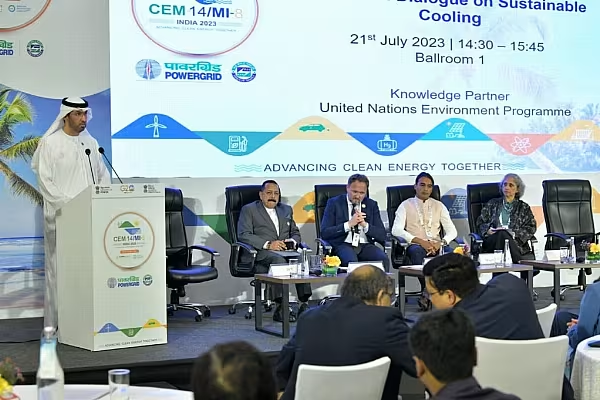COP28 president designate Dr Sultan Al Jaber has called on all countries to join the Global Cooling Pledge, which seeks to expand the availability of cooling systems to protect the most vulnerable communities from extreme heat.
It will focus on communities in the global south, small island states, and least developed countries.
The pledge, announced earlier this year, is a partnership between the United Nations Environment Programme (UNEP) and the COP28 Presidency.
Earlier in July, Al Jaber shared a plan for COP28, based on four pillars: fast tracking the energy transition, fixing climate finance, focusing on people, lives and livelihoods, and underpinning everything with full inclusivity.
The initiative offers incentives to governments and stakeholders to act on sustainable cooling in five areas. These include nature-based solutions, super-efficient appliances, food and vaccine cold chains, district cooling, and National Cooling Action Plans.
'Climate-Friendly Cooling'
Al Jaber commented, "We cannot expand cooling on a business-as-usual basis. Without strong policy action, emissions from the sector will rise between 7% to 10% from today.
"To solve this dilemma, we need a rapid transition to energy-efficient and climate-friendly cooling."
According to him, the cooling dilemma can provide access to cooling for those who need it without undermining the energy transition.
He added, "Food and medicine all depend on cooling. It is a topic of critical importance across climate mitigation and adaptation.
"Cooling is also a matter of climate justice ─ with heat disproportionately impacting lower-income communities and families."
He also highlighted the importance of sustainable cooling for reducing GHG emissions in a world witnessing rising temperatures.
"We have a unique opportunity to deliver a significant, collective response to the cooling challenge via the global cooling pledge. This pledge aims to improve energy efficiency and increase access to sustainable cooling," he stated.
The pledge has already gained the support from 20 countries, including India and Denmark.










